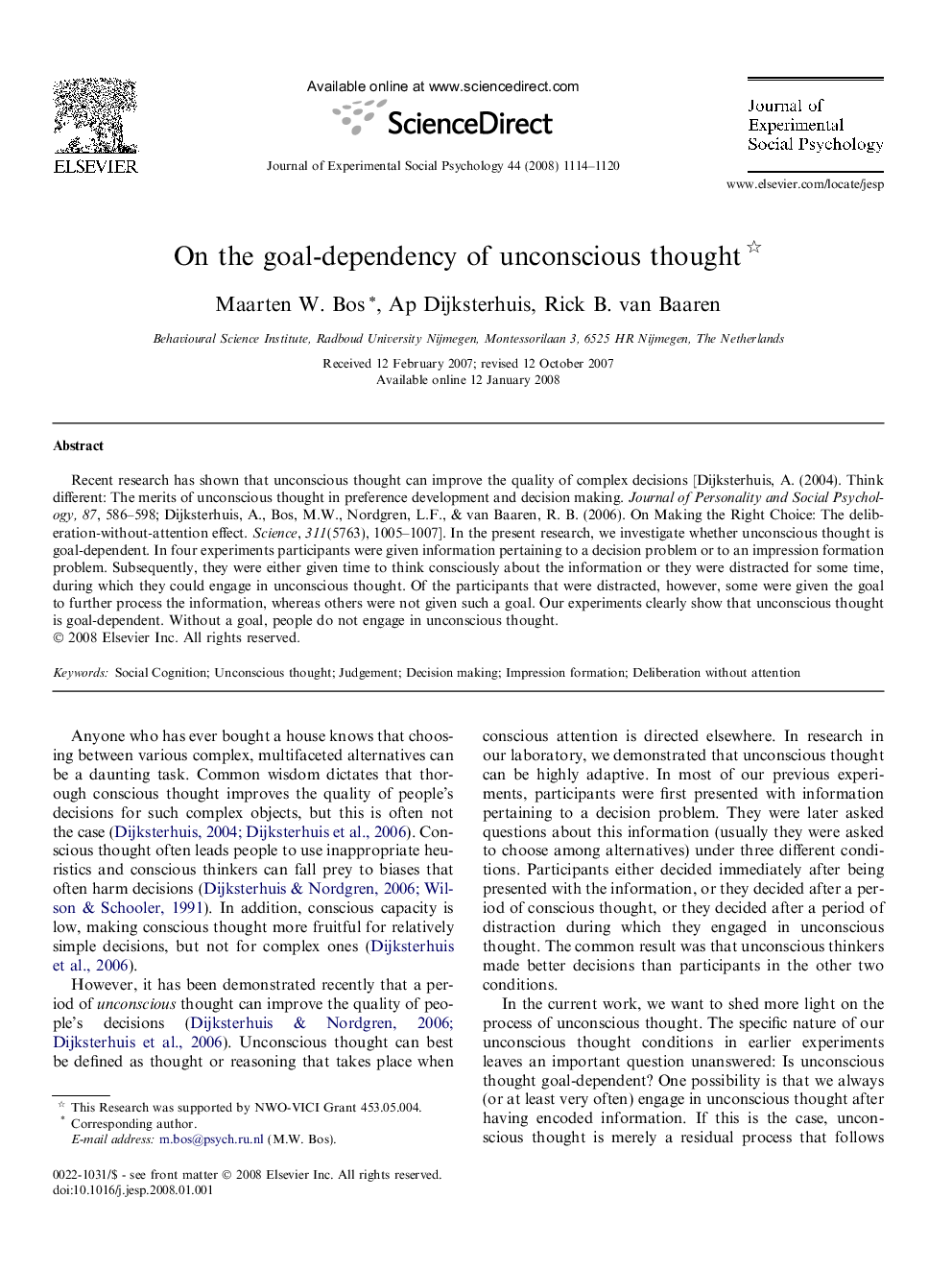| Article ID | Journal | Published Year | Pages | File Type |
|---|---|---|---|---|
| 10468626 | Journal of Experimental Social Psychology | 2008 | 7 Pages |
Abstract
Recent research has shown that unconscious thought can improve the quality of complex decisions [Dijksterhuis, A. (2004). Think different: The merits of unconscious thought in preference development and decision making. Journal of Personality and Social Psychology,87, 586-598; Dijksterhuis, A., Bos, M.W., Nordgren, L.F., & van Baaren, R. B. (2006). On Making the Right Choice: The deliberation-without-attention effect. Science, 311(5763), 1005-1007]. In the present research, we investigate whether unconscious thought is goal-dependent. In four experiments participants were given information pertaining to a decision problem or to an impression formation problem. Subsequently, they were either given time to think consciously about the information or they were distracted for some time, during which they could engage in unconscious thought. Of the participants that were distracted, however, some were given the goal to further process the information, whereas others were not given such a goal. Our experiments clearly show that unconscious thought is goal-dependent. Without a goal, people do not engage in unconscious thought.
Related Topics
Life Sciences
Neuroscience
Behavioral Neuroscience
Authors
Maarten W. Bos, Ap Dijksterhuis, Rick B. van Baaren,
